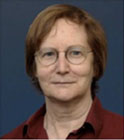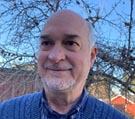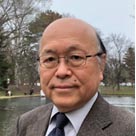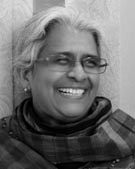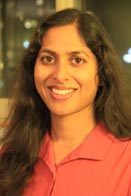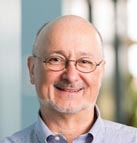 |
ISCApad #289 |
| Sunday, July 10, 2022 by Chris Wellekens |
2 ISCA News
| 2-1 | Message from ISCA president Prof. Sebastian Möller Dear friends of ISCA,
The month of June has been an active month for many of us. In the last ISCApad, I highlighted the work of the Technical Programme Committee of Interspeech 2022, and of the organizers who are dedicated to make Interspeech an excellent experience for you. This month, I would like to highlight the activities of individuals which are more hidden.
As all scientists, you as a member of our scientific community expect a high-quality scientific program from your favorite Interspeech conference. With good justification, you expect that papers are novel, that authors highlight their original ideas, and that they clearly distinguish from the state-of-the-art. Expert review is a key to ensure high quality. However, as fora for publishing papers – even without any review system – abound, and as the need for quick success sometimes outperforms desired quality, we need to be more careful in tracing the origin of papers. Tools for detecting plagiarism are a valuable mean to facilitate our work. Still, the processes – also within ISCA – are not yet optimum. This year, the Ethics Committee, led by Tatsuya Kawahara, has checked more than 70 Interspeech submissions which were pre-filtered by such tools and identified as suspicious. In some cases, the degree of overlap with existing (and mostly uncited) work was so large that the committee decided to not only reject the paper under consideration, but also all other papers submitted by the same authors. Also a ban from participating in ISCA-related events was issued. Whereas many of the authors understand the concerns and apologize for behaving against the ISCA Code-of-Conduct, others are less respectful.
I would like to use this opportunity as a reminder for the rules ISCA has established: The ISCA Code of Ethics for Authors highlights the dos and dont’s authors have to follow in order to make their contributions clear. The ISCA Code of Conduct for Conference and Workshop Attendees defines a set of principles we all have to follow in order to enable a pleasurable and valuable experience for all members of our community; unfortunately also these guidelines are not followed by all. The ISCA Ethics Committee follows up on incidences reported, but also proactively advocates the installation of processes to prevent unethical behavior to happen. My sincere gratitude goes to Tatsuya Kawahara and his committee for their important work, oftentimes happening in the background.
Other than this, there is a mixture of sad and promising news in this month’s newsletter, as always kindly compiled by Christian Wellekens. I wish you all a good summer, and a good read!
Sebastian Möller ISCA President
| |||||
| 2-2 | In Memoriam Anne Cutler (1945 – 2022) In Memoriam Anne Cutler (1945 – 2022) In early June, professor Anne Cutler suddenly passed away shortly after having fallen ill on a trip to the Netherlands. Her first time in the Netherlands since the pandemic. Anne Cutler was a highly valued member of the Internationa l Speech Communication Association (ISCA). In 2014 she received ISCA's highest honour, the ISCA Medal for Scientific Achievement 'for charting the variation of speech perception across languages, and for her leadership in the field of speech perception research'. Anne was a world-renowned psycholinguist. She helped shape the field of psycholinguistics through her research, which centred on how humans acquire and recognise spoken language. She pioneered many different research areas and was at the fore-front of many others: child language acquisition, the role of the native language on non-native speech processing, the role of prosody in spoken language learning and processing, to name but a few. Anne obtained her PhD from the University of Texas at Austin where she was one of the first PhDs in the new field of psycholinguistics. She completed her post-doctoral training at MIT, and then worked at the Medical Research Council – Cognition and Brain Sciences Unit, Cambridge UK. From 1993 to 2013 she was the Director of the Max Planck Institute for Psycholinguistics, Nijmegen, the Netherlands. After German law required her to retire (for which she was absolutely not ready she once told me), she went back to her native Australia to continue her research as a research professor at the MARCS Institute, University of Western Sydney. While Anne was a leader and pioneer in our field, she wasn’t only known for her research. She also played an important role within our community. Although Interspeech hosts research from speech science and speech technology, the fields are largely distinct. Anne has been instrumental in bridging these two complementary and important research areas. She was interested in understanding more about automatic speech processing and at the same time she reached out to people from the speech technology field to educate them on human speech processing. For example, together with Roger K. Moore she gave a tutorial on automatic and human speech processing at one of the Interspeech conferences, which was well-received. Anne really stood at the heart of the ISCA community. Anne is remembered as a strong woman, an amazing scientist, having a great sense of humour, a brilliant mind, easy to talk to, and a great mentor for countless students, young researchers, and colleagues. She built a huge academic family, and I am honoured to be part of that special family. Anne also strongly believed in empowering women and helping women researchers, and as such has been an inspiration and role model for many more junior female researchers. Anne will be dearly missed and we are forever grateful for Anne's leadership and for being such an amazing role model to all those she inspired, as well as future students and researchers that will learn and benefit from her lifelong contributions to psycholinguistics.
Anne Cutler ISCA Medal 2014 Citation For charting the variation of speech perception across languages and for her leadership in the field of speech perception research. Biography Anne Cutler is professor in the MARCS Institute University of Western Sydney and Processing program leader of the newly established ARC Center of Excellence in the Dynamics of Language. She sudied in Australia, Germany and the US and worked in the UK (Sussex, Cambridge) and from 1993 to 2013 as director of the Max Planck Institute for Psycholinguistics in Nijmegen, The Netherlands. Her research of which her book Native Listening (MIT Press, 2012) gives an overview, centres on human listeners' recognition of spoken language. It was tended over the years to involve a great many cross-linguistic comparisons (e.g. English, Dutch, German, Japanese, Cantonese, Korean, Sesotho, French, Spanish, Italian, Finish, Polish, Arabic, Telugu, Berber,-so far). ISCA Vice-President And one of Anne’s many academic “daughters”
An in memoriam from her university: https://www.westernsydney.edu.au/research/vale-distinguished-professor-cutler If you want to leave memories or condoleances: https://www.mpi.nl/memories-of-anne-cutler
| |||||
| 2-3 | 2022 ISCA FELLOWS Announced
Over the past few months, ISCA has been seeking nominations and endorsements for this year’s ISCA Fellowship awards. The ISCA Fellows Selection Committee maintains a rigorous process of evaluating all nominations (more details are found on the ISCA webpage at: https://www.isca-speech.org/iscaweb/index.php/honors/fellows). After extensive evaluations and reviews, the following six distinguished researchers will be elevated to the status of ISCA Fellow for 2022. Their citations as well as affiliations are highlighted below. Please join me in congratulating these well deserving colleagues for their research contributions to the field of speech communication and technology! All will be recognized at INTERSPEECH 2022 in Incheon, Korea, this fall.
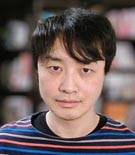
As always, we welcome feedback and input from the ISCA community – if you have suggestions for our society or want to be involved, please let us know!
Phil Green (ISCA Fellows Board Member) Sebastian Möller (ISCA President)
| |||||
| 2-4 | ELRA/ISCA Special Interest Group: Under-resourced Languages (SIGUL) ELRA/ISCA Special Interest Group: Under-resourced Languages (SIGUL) Created in April 2017, SIGUL is a joint Special Interest Group of the European Language Resources Association (ELRA) and of the International Speech Communication Association (ISCA). This year, SIGUL enters the fifth year and now has more than 300 members. The SIGUL Board is elected every two years, and last year SIGUL had a new Board officer: Chair and ISCA liaison representative: Sakriani Sakti (JAIST, Japan) Co-chair and ELRA liaison representative: Claudia Soria (CNR-ILC, Italy) Secretary: Maite Melero (Barcelona Supercomputing Center, Spain)
SIGUL has organized various events, including the Spoken Language Technologies for Under-resourced languages (SLTU) Workshop Series, which has been organized since 2008, and Collaboration and Computing for Under-Resourced Languages (CCURL), which has been organized as LREC Workshop since 2014. From this year, the tradition of CCURL-SLTU will be united into one SIGUL Workshop and planned to be held as a Satellite Workshop of LREC or INTERSPEECH. The 1st Annual Meeting of the ELRA/ISCA Special Interest Group on Under-Resourced Languages (SIGUL 2022) will be held as Satellite Workshop of LREC 2022, Marseille (FR), 24-25 June 2022. The SIGUL venue will provide a forum for the presentation of cutting-edge research in NLP/SLP for under-resourced languages to both academic and industry researchers, and also offer a venue where researchers in different disciplines and from varied backgrounds can fruitfully explore new areas of intellectual and practical development while honoring their common interest of sustaining less-resourced languages. Topics include but are not limited to:
We also invite position papers on methodological, ethical, or institutional issues. Important Dates:
More details can be found on the workshop web page: https://sigul-2022.ilc.cnr.it/
SIGUL Board Sakriani Sakti Claudia Soria Maite Melero
| |||||
| 2-5 | ISCA Language SIGS ISCA supports speech communication research activities in various languages. The individual languages have equal interest, but they may involve have different technical or scientific problems. For example, some languages are tonal, while others are not; Some languages have only one writing system, while others have several. In the ISCA community, we have 6 language Special Interest Groups (SIGs) for Chinese, French, Italian, Iberian, Indian, and Russian. Each SIG is organised by researchers who speak the language of interest as L1 and others who have a technical or scientific interest in the language. Each SIG sponsors domestic and international research activities, and representative members of the SIGs attend a Lang SIG meeting every year during the INTERSPEECH conference. In this meeting, recent activities of each SIG are reported, and new ideas are exchanged. We also review what ISCA can do for the SIGs and what the SIGs can do for ISCA. Each SIG has its own web page, and you can visit the pages here. Prof. Nobuaki MINEMATSU The University of Tokyo Japan
| |||||
| 2-6 | ISCA Special Interest Group (SIG) 'Spoken Language Translation'
ISCA SIG “Spoken Language Translation” Aims. The SIG SLT covers all aspects of spoken language translation — simultaneous translation and interpretation, speech dubbing, speech-to-text translation, speech-to-speech translation, cross-lingual communication including paralinguistic, emotional or multimodal information, and related areas SIG SLT will (a) provide members of ISCA with a special interest in spoken language translation and its related areas with a means of exchanging news of recent research developments and other matters of interest in spoken language translation; (b) organize challenges and evaluation campaigns; (c) sponsor and organize the International Conference on Spoken Language Translation (IWSLT), meetings, satellites, and tutorial workshops in spoken language translation, operating within the framework of ISCA's by-laws for SIGs; and (d) make available open-source code and data resources, best practices and tools, and evaluation metrics relevant to spoken language translation.
Motivation. Recent interest in speech translation and simultaneous translation by machine has been growing explosively, due to continued performance advances and a growing international need for simultaneous translation and interpretation, speech dubbing, speech-to-text translation, speech-to-speech translation, cross-lingual communication including paralinguistic, emotional or multimodal information, and related areas. The under-covered elements in the current research are, for instance, incremental simultaneous speech-to-speech translation, paralinguistic translation, speaking style translation across languages. The proposed SIG will be organized by the members who are interested in spoken language translation/interpretation from various related areas such as ASR, TTS, and MT. SIG SLT emerged from over two decades of organizing the International Conference on Spoken Language Translation (IWSLT) and its predecessor C-Star, scaling operations in response to significant growth in the field. The organizers of IWSLT and partners believe it is now time to join with ISCA by creating an ISCA SIG. IWSLT has a 15-year track record of profitability; it runs the premier benchmarking campaign on spoken language translation annually accompanied by an international scientific conference to present and discuss results.
| |||||
| 2-7 | ISCA needs your help! ISCA needs your help!
For the smooth running of our organization and our flagship conference Interspeech, we’ve been relying on lots of different electronic tools. Unfortunately, many of these tools are outdated and/or did not scale up with the growth of our community. Moreover, our website and communication channels get do with a make-over.
In order to improve the services for the benefit of the entire community, we are looking for volunteers who would like to help with the task of planning a new IT infrastructure for ISCA. This infrastructure might include the review system, the reviewer database, membership administration, web site, communication tools, as well as other administrative IT infrastructures still to be defined. Requirements should be collected from members of the ISCA board, past and present Interspeech organisers, and our community, and they should be mapped to the possibilities ISCA has, considering also personal issues such as frequently-changing board members, absence of continuous IT support, etc.
Would you like to help in the planning of the new IT infrastructure? Please send an email to president@isca-speech.org indicating why you are interested, and a little bit of your personal background relevant to this activity.
Thanks! Odette & Sebastian
| |||||
| 2-8 | ISCA-PEDRAC: a new service of ISCA. ISCA-PECRAC (Postdoc & Early Career Researcher Advisory Committee) is pleased to invite postdoc & early career researchers to participate in the 1st Early Career Researcher Annual Gathering @ Interspeech 2021 (online this year).
The Early Career Researcher Annual Gathering aims to provide an opportunity for postdoc & early career researchers to meet and communicate at INTERSPEECH. In the framework of ISCA-PECRAC, we would like:
1st Early Career Researcher Annual Gathering @ Interspeech 2021 Time : August 30 at 18:00 - Brno time (preliminary slot) Location : Online Program :
Contacts: Yaru Wu (yaru.wu@sorbonne-nouvelle.fr) Berrak Sisman (berrak_sisman@sutd.edu.sg)
| |||||
| 2-9 | ISCA social networks We encourage all members tokeep contact with ISCA via our social nets. Also you will bde kept informed about all events on our website. This is particularly important in this time where due to the coronavirus, many modifications may be brought to the conference.
ISCA Facebook : https://www.facebook.com/iscaspeech/ ISCA Twitter : https://twitter.com/ISCAFOX ISCA SAC Student Facebook : https://www.facebook.com/groups/98794207409/ website : www.isca-speech.org
| |||||
| 2-10 | Code-of-Conduct for Conference and Workshop Attendees Code-of-Conduct for Conference and Workshop Attendees
| |||||
| 2-11 | Code-of-Ethics for Authors (updated) Code of Ethics for Authors
| |||||
| 2-12 | Reminder ISCA International virtual seminars REMINDER: ISCA INTERNATIONAL VIRTUAL SEMINARS Now's the time of year to start organising your seminar programme for the coming academic year. Don't forget that ISCA has recruited 17 leading researchers in Speech Communication prepared to give seminars on line. For instance, Gustav Henter of KTH Stockholm comments: As the person responsible for seminars at the Division of Speech, Music and Hearing (TMH) at KTH Royal Institute of Technology, in Stockholm, Sweden, I would like to thank you for the excellent initiative to set up ISCA international virtual seminars during the pandemic. Thus far our division has made use of this scheme on three occasions: The idea to invite distinguished speakers virtually has been widely appreciated by the department. It is likely that we may schedule further virtual seminar from your pool for our autumn semester seminars as well. For details, follow the entry Online Seminars in the left menu on the ISCA home page, https://www.isca-speech.org/iscaweb
-- ************************ Professor Phil Green SpandH Computer Science University of Sheffield ************************
| |||||
| 2-13 | Call for reviewers Interspeech 2022 Nominations to be a reviewer for Interspeech 2022 are now open. If you would like to review for Interspeech, or if you have a colleague or former student who would be qualified, please nominate yourself, your colleague, or your former student at https://isca-speech.org/iscareviewers/reviewer.php.
Interspeech reviewers must have a Ph.D. in an area of research related to speech science and/or speech technology. Nominations must include a link to an online CV; nominations will be reviewed by the ISCA Technical Committee.
| |||||
| 2-14 | Videos at Interspeech 2021 The video recordings of Interspeech 2021 were processed and are currently being uploaded online. You can find all the videos at
| |||||
| 2-15 | Prix AFCP attribué à Mathieu Balaguer. Après étude des candidatures par le Conseil d’administration de l’AFCP, le prix de thèse 2021 a été attribué à Les prix de thèse 2020 et 2021 seront remis aux lauréats lors des JEP 2022 qui se déroulent à Noirmoutier, 13-17 juin (attention: inscription au tarif préférentiel avant le 2 mai).
Martine Adda-Decker,
| |||||
| 2-16 | Women in Speech Research ISCA is committed to supporting diversity in speech communication, and celebrating speech
|


